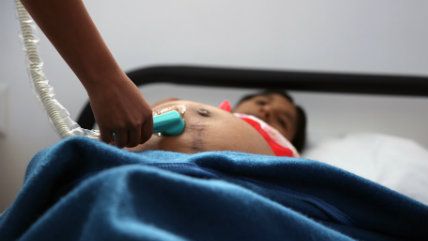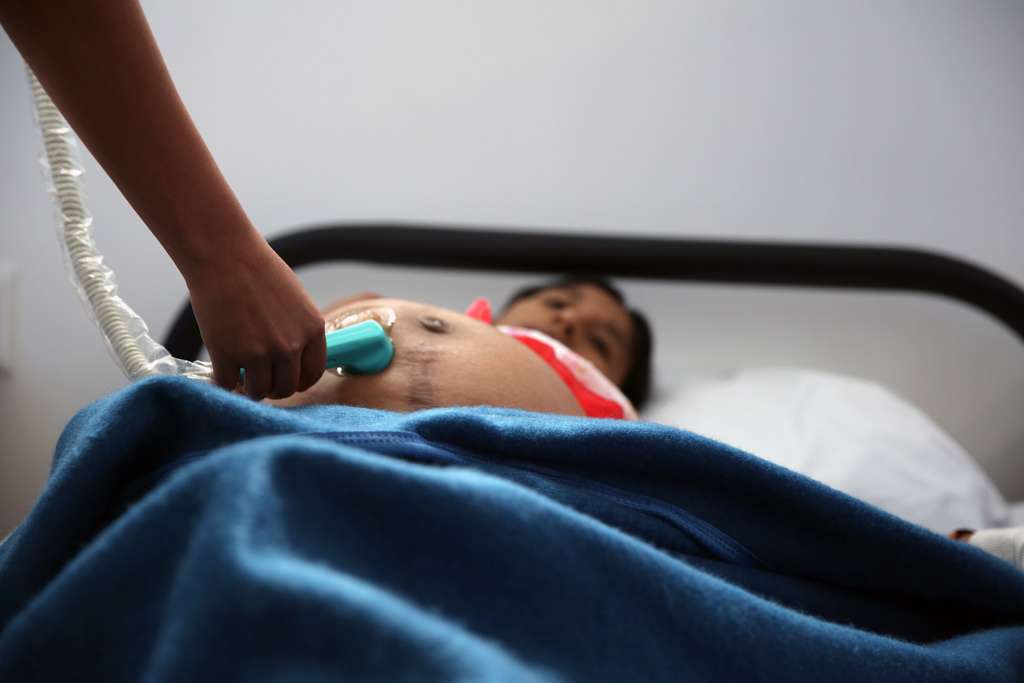Total Abortion Ban Reinstated in Dominican Republic
Abortion under any circumstances (even when the mother's life is at risk) is a criminal offense in this Caribbean country.


The Dominican Republic's Constitutional Court has reinstated the country's total ban on abortion, including cases in which a pregnant woman's life is at risk.
In December 2014, Dominican President Danilo Medina approved measures decriminalizing abortion in cases of rape, incest, and fetal deformity, as well as situations where the mother's life would be endangered by carrying the pregnancy to term. The reforms were set to take effect December 19, 2015. But religious and socially conservative groups appealed, arguing in court that the country's constitution protects the rights of "unborn children" from the moment of conception. On Wednesday, the D.R.'s Constitutional Court agreed, holding that the attempted changes to the country's criminal code were unconstitutional.
Opponents of the court's decision say the country's total abortion ban puts girls and women at risk by prompting pregnant women to visit black-market abortion doctors and forcing them to give birth even when it's physically dangerous. "This decision … will be catastrophic for women and girls in the Dominican Republic who will continue to be criminalized, stigmatized and forced to seek out unsafe abortions because they are denied access to safe and legal medical treatment," said Erika Guevara, Americas director at Amnesty International, in a statement.
Amnesty was one of several major rights groups that filed amicus curiae briefs in suport of the abortion-law reforms. The groups noted that "the Inter-American Court, as the only authorized interpreter of the American Convention on Human Rights, has established that the protection to the right to life is not absolute and cannot be used to justify the denial of other rights. Faced with conflicting rights, it would be possible to invoke exceptions to the protection of the right to life from the moment of conception."
The Dominican Republic is far from the only Latin American or Caribbean country with stringent restrictions on abortion. In general, "Latin America remains a bastion of draconian anti-abortion legislation, where the termination of a pregnancy is almost universally considered a criminal act," as Annie Kelly explains at The Guardian. "Most countries operate an exemptions approach, where abortion is illegal but penalties are waived in a few specific circumstances."
Like the Dominican, Chile, Nicaragua, El Salvador, and Honduras also ban abortion in all circumstances. Amnesty International recently took a look at how the ban affects El Salvadoran women, who not only can't terminate a pregnancy legally but risk being arrested and imprisoned for murder when they miscarry naturally or give birth to a stillborn.
"It is common for an assumption of guilt to be the starting point of investigations and of the criminal proceedings brought against these women," Amnesty noted. "This starting point gives rise to further expressions of institutional violence, reflected in the attitude and behaviour of medical staff in the public health system, throughout the process of investigation, and in the proceedings of the criminal justice and penal systems."
Prison sentences for these women can be as much as 40 years.


Show Comments (78)